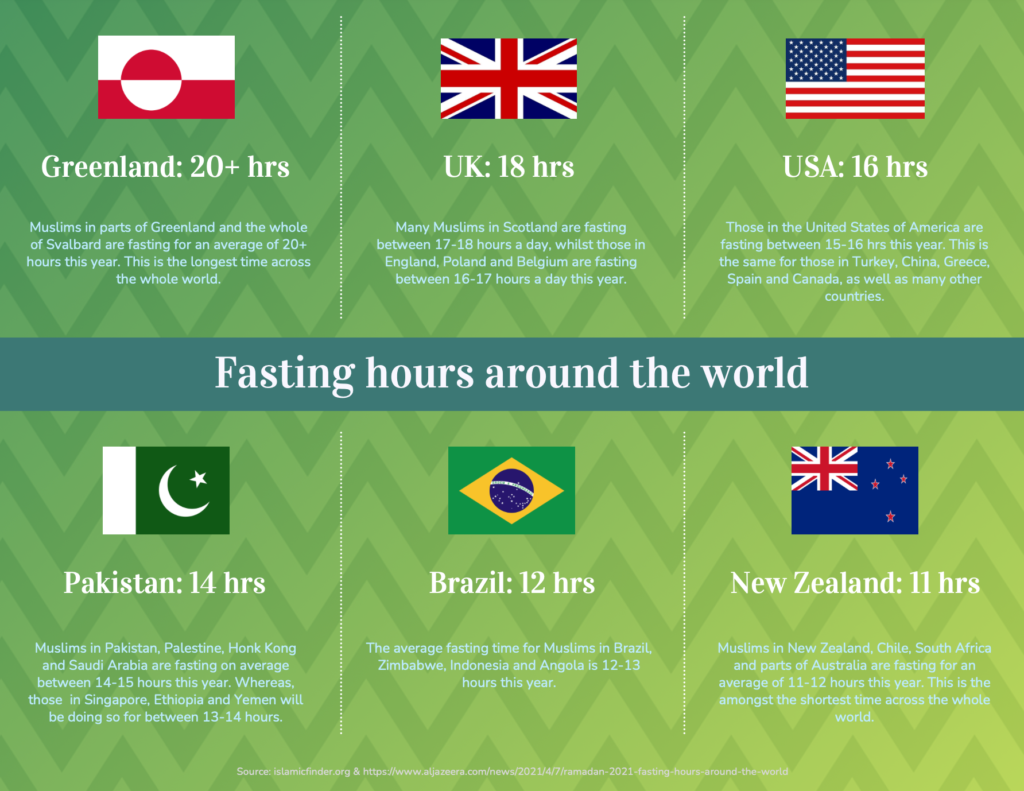Students fasting for 18 hours a day in Ramadan during pandemic
Ramadan is the holiest month in the Islamic calendar and Muslim students across the UK have been fasting for up to 18 hours a day in the midst of a global pandemic.

Photo: Students looking at work. Credit: Matty Stern/U.S. Embassy Tel Aviv.
It is reported that there are more than 230,000 Muslim students within the UK higher education system, making up 8-9% of the total student population.
Many of these young Muslims have been fasting since mid-April and will do so until mid-May.
During this time, they strive to better themselves by giving to charity and helping those in need.
They also refrain from worldly pleasures like music, wealth and profanity.

Infographic: Fasting times across the world. Created using Venngage.
Muslims believe the Qur’an was first revealed to Prophet Muhammad during this month. And although many may be used to fasting – this year is proving to be the hardest yet due to coronavirus.
Aasha Shahzadi, a Law student at Nottingham Trent, told JLDN: “Often I find that I can’t focus due to hunger, or the feeling of weakness.”
“However, as the month goes on and a routine is established it becomes less challenging, but the difficulty always remains.”
Some university students have been observing Ramadan since a young age so have become accustomed to the struggles.
Ameera Riley, a student, said: “I have been fasting since I was 11 and find it so easy, it teaches you to have a lot of self-control and is very testing but I love it.”
Nonetheless, not eating or drinking anything for several hours is very challenging. (And yes… Not even water.)

Photo: Pictured above, two dates and a glass of water, which is what Muslims typically eat when opening their fast.
Jannatul Ferdous, VP Welfare and Equalities at LSBU told JLDN: “It has a huge impact on my schedule, especially on my morning schedule.”
To help ease stress, Ferdous recommended speaking to lecturers and prioritising work based on deadlines.
Idris Mohammed, a Pharmacy graduate, said: “It is extremely important to find a balance between work and iman (faith).
“[Ramadan] is a month of spirituality and Muslims focus on connecting closer to Allah through our good deeds like charity and prayer.”
Aasha Shazadi added: “Fasting helps [Muslims] empathise and increase our charity.”
It is an act of deep, personal worship in which we strengthen our connection with God.”
To mark the end of Ramadan, Muslims across the world celebrate Eid al-Fitr, which translates to the Festival of the Breaking of the Fast.
This religious holiday is also a time for Muslims to reflect upon the previous month and to thank God.
During Eid al-Fitr, they wear their finest clothes, eat a big feast, exchange gifts and give money to charity. They also spend time with their loved ones.
However, like last year it will be very different for Muslims in England. Lockdown restrictions will not ease until May 17th – four days after Eid.
Covid-19 has also led to the deaths of many Muslims. Data from the ONS shows that in England, people identifying as Muslim, had the highest deaths involving coronavirus.
Therefore, many Muslims will be celebrating without their family and friends this year.
By Mohammed Shaakir


















